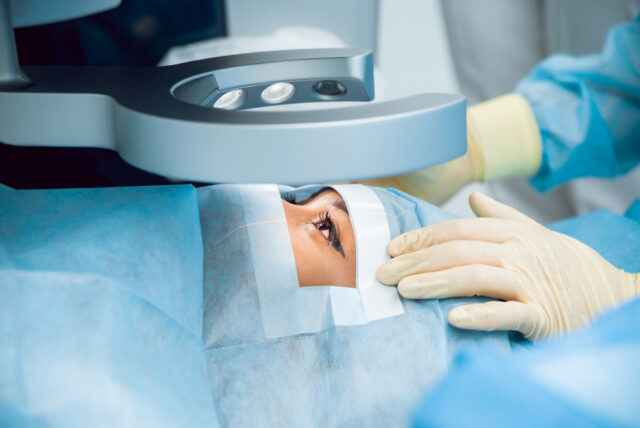Anesthesia for cataract surgery is the medication used to numb the eye so you do not feel it during the procedure.
Since cataract surgery is an outpatient procedure, lasting only about an hour or less, you will remain awake and receive local anesthesia in the form of eye drops or a needle-based block most of the time. In most cases, you receive a sedative or other medications to help you relax.
To prepare for cataract surgery and anesthesia, you will need to follow your doctor’s instructions. Refrain from eating or drinking 8 hours before surgery. You need to take any necessary medications as directed and be sure you have someone to drive you home from the procedure.
A cataract occurs when the lens of the eye becomes cloudy and needs to be repaired through surgery. Usually, a replacement lens is implanted.
This is a surgical procedure that requires anesthesia. Anesthesia for cataract surgery is the medication used to numb the eye so you do not feel it during the procedure.
Since cataract surgery is an outpatient procedure, lasting only about an hour or less, you will remain awake and receive local anesthesia in the form of eye drops or a needle-based block most of the time. In most cases, you receive a sedative or other medications to help you relax.
To prepare for cataract surgery and anesthesia, you will need to follow your doctor’s instructions. Refrain from eating or drinking 8 hours before surgery. You need to take any necessary medications as directed and be sure you have someone to drive you home from the hospital.
Nearly 10 million cataract surgeries are performed around the world every year, making it one of the most common surgical procedures.
Anesthesia is the administration of medications to block or numb pain during a surgical procedure. It is usually provided by a special doctor called an anesthesiologist.
Since cataract surgery is fairly quick and minimally noninvasive, the anesthesia is usually light. The eye can be numbed locally, eliminating the need for full sedation most of the time.
The doctor will numb your eye itself and generally keep you awake during the surgery. You will often be given either oral or intravenous (IV) medications to help you relax and remain comfortable.























